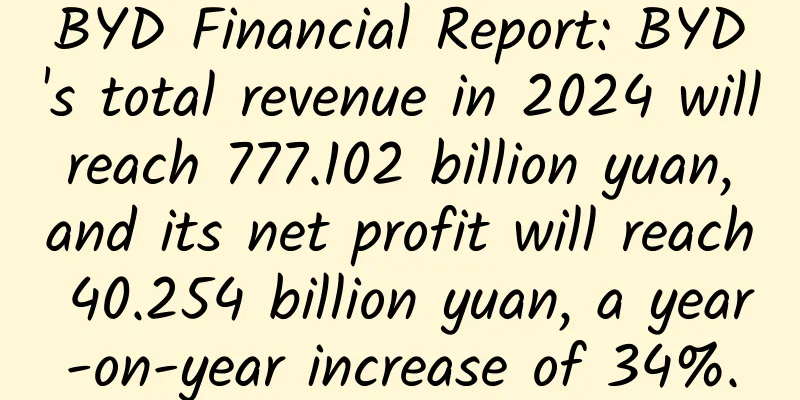How far are traditional TV brands from experiencing the "Nokia tragedy"?

|
Even though Ma Huateng once publicly promised that "Tencent will not make hardware", after Baidu and Alibaba successively "hardened", Tencent, which was labeled "absolute" and "dedicated", had to slowly start to change. Recently, there have been reports that Tencent will launch its own smart TV products in 2015, becoming the last Internet giant among BAT to enter the living room entertainment industry. In fact, Tencent has never been absent in the exploration of the smart TV industry and home living room entertainment. However, compared with other Internet companies, Tencent's involvement in the smart TV industry and even the smart home field is more gradual and cautious. After Internet companies led by BAT launched a thorough collective attack on the field of smart TVs, we have to wonder whether traditional TV manufacturers that have long dominated the market with their brand power will eventually follow in the footsteps of "Nokia"? Tencent continues to build living room entertainment From the outside, compared with the other two BAT companies, Baidu and Alibaba, Tencent's involvement in the smart TV field is obviously lagging behind. But in fact, as early as 2012, Tencent had formed an alliance with TCL to create the mobile Internet smart screen terminal "Ice Screen", with TCL providing hardware products and Tencent responsible for Internet software services. Although it has also tried to remove the "TVization", the "Ice Screen" equipped with the Android system is actually a prototype of a "smart TV" with a flat-panel TV on the surface and an integrated computer on the inside. Last year, Tencent also started a cooperation journey with another traditional TV manufacturer, Konka. At that time, the only official cooperation between Tencent and Konka TV on the QQ IoT platform was launched, but Konka publicly stated that in the future, Konka will conduct a series of in-depth cooperation with Tencent in the three aspects of TV games, social experience, and TV interaction. According to Konka's 2014 "1+1" strategic deployment, Konka has stopped all non-smart TV research and development in 2014. On the surface, it seems to be a positive response of traditional TV manufacturers in the face of the Internet and the smart era. In fact, industry insiders revealed that Konka was "forced" to accept Tencent's strategic investment and the corresponding penetration of Internet advantages into the traditional TV industry due to poor management and a cut in the capital chain. Recently, Tencent Video announced the "Qingzhe Plan" in collaboration with hundreds of CPs including Wanhe Tianyi, Baozou Comics, and Xuduba. It plans to sign and focus on supporting 100 high-quality PGC projects in 2015 to build the largest original video platform on the entire network. The cultivation of user stickiness has made high-quality PGC content once again a hot commodity on video platforms and a new growth point for current video websites. Unlike other video giants, Tencent does not rely on copyright purchases to acquire high-quality content, but rather uses the brand power of the platform to lead the gathering of content resources; and then transfers the advantages of video content to the construction of living room entertainment through the platform. Traditional manufacturers are in danger of "Nokia's death" It is reported that Tencent will directly get involved in the manufacturing of smart TV products this time, but it is believed that, like Baidu and Alibaba, Tencent will not spend much effort on hardware products at present. Instead, it will continue to choose to cooperate with traditional TV manufacturers and control the entire smart TV industry chain by controlling the content application service gateway. As Konka values, Internet companies represented by Tencent, whether in video, games, social networking, or any other TV content applications, occupy the future of the industry that traditional TV manufacturers cannot control. Currently, none of BAT has the tendency to produce smart TV products independently, and the involvement of Internet companies represented by LeTV and Xiaomi has greatly reduced the profit margin of smart TV hardware products. Therefore, the production of hardware products is no longer within the consideration of Internet giants. Meanwhile, looking at the sales of 31.1 million smart TVs in 2014, the total sales of Internet companies, led by LeTV and Xiaomi, were less than 2 million. This has also prompted traditional TV manufacturers, whose product sales have remained high, to not have a deep enough understanding of their own situation, and have not developed a corresponding sense of crisis about the entry of Internet companies. Even the vast majority of traditional manufacturers still pin their corporate development and profits on the sales of hardware products. What BAT wants to do is to naturally feed its own systems, services, content, etc. to traditional TV manufacturers who are eager to transform, and then use these "foods" as bait to train the hungry traditional TV manufacturers from ferocious wolves into docile sheep. Although the current content of the entire smart TV industry is still mainly focused on video on demand, it is believed that Tencent, as a latecomer, may use its game resources and social advantages that its competitors cannot match to surpass other Internet companies that have made early arrangements. By combining large-screen games with strong interaction and experience with large social systems such as WeChat and QQ, smart TVs can achieve true intelligence and enrichment. No matter which traditional TV manufacturers choose to cooperate with Tencent, it is expected that none of them will escape the tragic fate of "Nokia". What we are only concerned about is whether the smart TV industry can break through the current difficulties and achieve a new round of development under Tencent's high-profile entry. As a winner of Toutiao's Qingyun Plan and Baijiahao's Bai+ Plan, the 2019 Baidu Digital Author of the Year, the Baijiahao's Most Popular Author in the Technology Field, the 2019 Sogou Technology and Culture Author, and the 2021 Baijiahao Quarterly Influential Creator, he has won many awards, including the 2013 Sohu Best Industry Media Person, the 2015 China New Media Entrepreneurship Competition Beijing Third Place, the 2015 Guangmang Experience Award, the 2015 China New Media Entrepreneurship Competition Finals Third Place, and the 2018 Baidu Dynamic Annual Powerful Celebrity. |
<<: BAT enters the film and television industry and the industry war is about to break out
>>: Amazon's entry into Tmall leaves three major suspense
Recommend
In 2017, who will be the first to gain an oligopoly in the live streaming market?
At the beginning of 2017, the live broadcast mark...
Taking Maoyan Movie as an example, the UCG platform operation strategy is explained in detail
Logically speaking, we should first prove that Ma...
Electric Technology Car News: If you only know how to step on the accelerator when overtaking, you are wrong. Only by learning these few skills can you become an experienced driver.
Whether it is daily driving or on the highway, ov...
Google admits to violating iOS development policy, Apple may revoke its enterprise development certificate
[[256854]] Google acknowledged on Wednesday that ...
The fission gameplay of Weibo traffic diversion!
I have been in the Internet circle for 6 years an...
360 Points Promotion Tutorial [Detailed Lecture]
Learn to master: Learn the relevant knowledge of ...
Nintendo may have a tough winter this year
On October 29, Nintendo's new president, Tats...
One picture to understand丨The "blacklist" of released species: In addition to the alligator gar, there are also the ones you are familiar with>>
The seemingly benevolent act of "releasing a...
Thoughts behind the Nanjing electric vehicle fire: Illegal parking and charging continue despite repeated bans, so why do people always take chances?
The fire in a residential building in Nanjing cau...
Wandering "Love Rival Strategy Video Course" + "Love Rival Handbook"
Introduction to the resources of Langji's &qu...
Google launches an app that helps hearing-impaired people communicate freely
In 1882, a sudden illness took away all the color...
From scratch to independent designer, interior design employment class, easy employment after learning
Course Catalog 01.1 Understanding the interior de...
WeChat for Windows and iOS is now available: You can browse Moments on your PC
Early morning news on June 7, WeChat recently rel...









